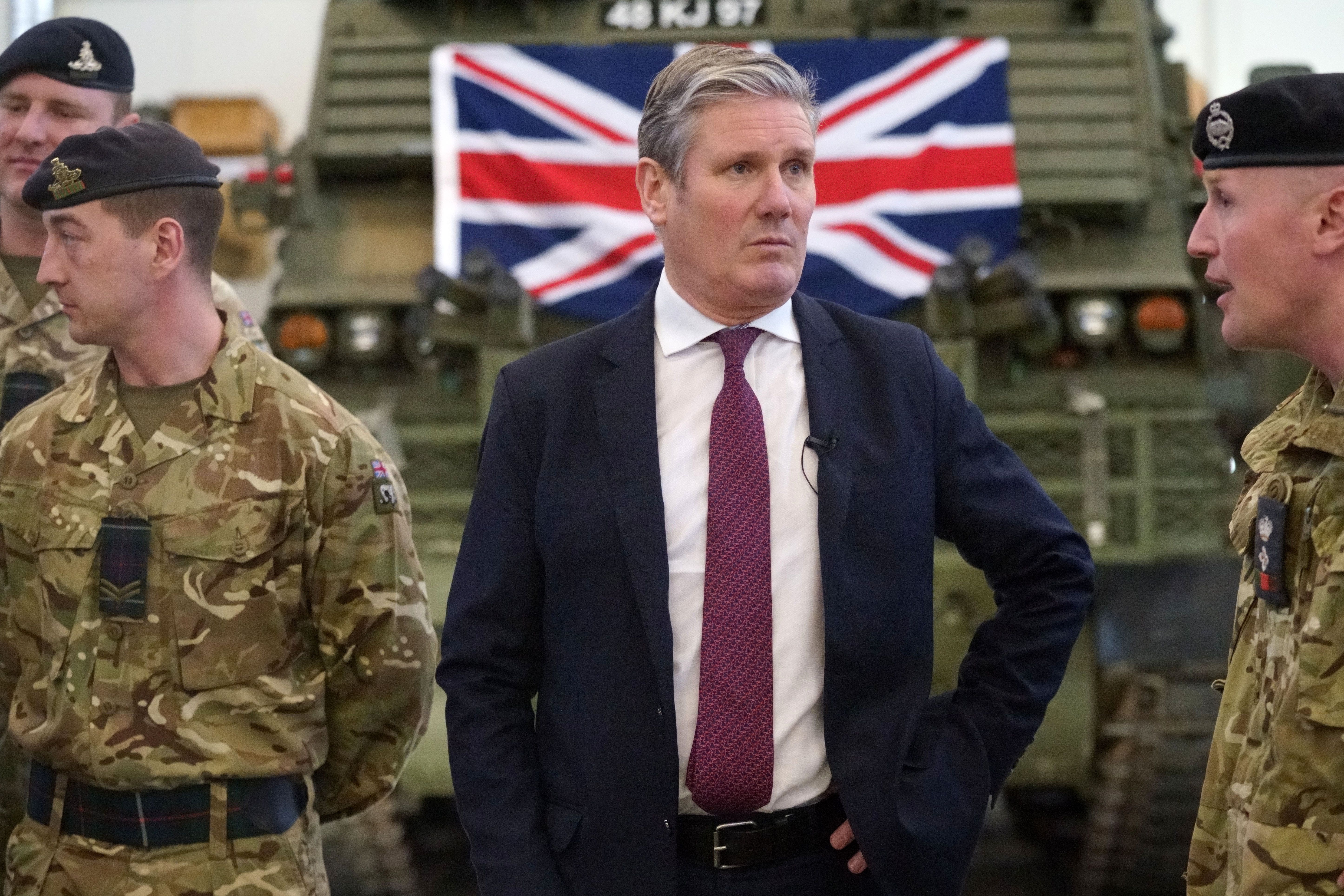Nato offers post-Brexit Britain a rare chance to show leadership on a global scale
Editorial: Delegates at the Washington summit will confront a future as uncertain and challenging as any during the Cold War. The new prime minister should seize the opportunity

Under normal circumstances, in a parallel, more peaceful universe, this week’s Nato summit, to mark the organisation’s 75th anniversary, would be a fairly self-congratulatory affair. For its members, the North Atlantic Treaty Organisation has protected them from attack, kept the peace and won the Cold War. The world since 1949 has seen many wars and conflicts, but the territorial integrity of its member states has never been seriously compromised, not even on those occasions when two of its own member states, Greece and Turkey, came close to war.
Today, the gathering in Washington has to face a future every bit as uncertain and challenging as anything it has had to contend with during the Cold War and its associated proxy conflicts in Korea, Vietnam and Africa. As if to act as a graphic and gruesome reminder of the evil that Nato is directly confronted with, Russian president Vladimir Putin decided to order an attack on a children’s hospital in Kyiv, wilfully bombing young people being treated for cancer. It takes some perverse imagination to come up with that as a target; and it betrays, not for the last time, a belief that acts of terror are legitimate in his war of aggression in Ukraine.
All that may be said of that cowardly assault is that it proves Mr Putin cannot be allowed to succeed, and that it should only serve to strengthen Western resolve. It was a timely antidote to the war weariness that has set in in some quarters since the Kremlin embarked on its bloody “special military operation” in 2022. After unforgivable delays in the US Congress in the supply of aid, arms and ammunition to President Zelensky’s forces, this latest summit should see a renewed commitment to Ukraine’s freedom. Their struggle is our struggle, and the West cannot afford to succumb to Russian aggression. Appeasement of the kind suggested by Donald Trump and the maverick leader of Hungary, Viktor Orban, will bring only more insecurity.
This is also an appropriate moment to reflect on the strength of the “all for one, one for all” spirit of Article 5 of the Nato treaty: “The parties agree that an armed attack against one or more of them in Europe or North America shall be considered an attack against them all and consequently they agree that, if such an armed attack occurs, each of them… will assist the party or parties so attacked by taking forthwith, individually and in concert with the other parties, such action as it deems necessary, including the use of armed force, to restore and maintain the security of the North Atlantic area.”
Those lines are the most effective guarantee of collective security in the history of the world – and the best evidence for the success of Nato is that they have only had to be acted upon once, after the 9/11 attacks. Tellingly, the heightened threat to Western security from a revanchist Russia has prompted Finland and Sweden to join the pact, meaning that a war Mr Putin started to have less Nato has instead resulted in more Nato, and the solidification of the defensive bloc around him.
So far from Nato expansion provoking Russia, as Nigel Farage and Mr Trump think, it prevents such wars of aggression, and will continue to guarantee – under multilateral forces and a nuclear umbrella – the independence of states such as Estonia, Poland and Romania, once under Russian domination. It was not, in truth, Ukraine’s desire to join Nato that “provoked” war, but the failure of Nato to make Ukraine a full member that invited invasion and war. As Sir Keir Starmer says, it is essential to place Ukraine on an “irreversible” path to Nato membership; and other sovereign nations menaced by Mr Putin’s amoral armies, such as Moldova.
That said, Mr Trump, when in the White House, was right to raise the question of how much Europe contributes to its own defence (though he was characteristically crass in doing so). It is disappointing that the new prime minister, who has made such an encouraging and serious start in his duties, has not yet set a deadline for the UK to raise its defence contribution to 2.5 per cent of national income.
Sir Keir, naturally, wants to undertake a proper review of defence priorities, and it’s fair to recognise both that money doesn’t guarantee outputs, and that the public finances are under pressure. But if Nato is to continue to fulfil its central role in Western security, it will need more than solemn declarations and lofty speeches.
This summit is an opportunity, one of relatively few, where post-Brexit Britain can demonstrate leadership on a global scale. Sir Keir should seize it.
Join our commenting forum
Join thought-provoking conversations, follow other Independent readers and see their replies
Comments